Russia won’t stop terror fight in Syria to solve EU’s refugee problem: Lavrov
Russia says it will not stop fighting terrorism in Syria alongside the Damascus government because of European concerns over a new influx of refugees into the continent.
Foreign Minister Sergei Lavrov made the remarks on Tuesday at a news conference alongside his Finnish counterpart Pekka Haavisto in Helsinki.
“We understand how serious the problem of refugees and illegal immigration is for the European Union, but we cannot stop the fight against terrorism to solve the problem of refugees,” Lavrov said.
The top Russian diplomat said the solution to the threats of a new refugee crisis in Europe is upholding the agreements reached in 2018 between President Vladimir Putin and his Turkish counterpart, Recep Tayyip Erdogan, in Sochi on demilitarizing Idlib.
The two leaders are slated to meet in Moscow on Thursday to discuss the Idlib situation.
“Unfortunately, these agreements have not yet been completed, but we hope that the next meeting between Putin and Erdogan will find a way to approach that moment,” Lavrov said.
He further expressed hope that the EU “does not forget the terrorist threat, which is growing in the Middle East and the Idlib region.”
Russia has been lending aerial support to Syria’s ground operations against militants and Takfiri terrorists since September 2016. The cooperation together with Iranian military advisory support has turned the tables on the foreign-backed violent factions, which began taking on the Arab country in 2011.
Lavrov’s remarks specifically concerned the backup airpower that Moscow’s provides for the Syrian Army in the northwestern Syrian province of Idlib, those groups’ last major stronghold in the Arab country.
On Saturday, Turkey, which mans some observation posts in Idlib and backs a number of the militant outfits against Damascus in the province, said it had started letting the refugees that it houses into Europe.
The country took the alleged measure after accusing Europe of not doing enough to help it with the migrants as well as its failing to have Moscow stop Damascus’ advances in Idlib.
The Russian-backed Syrian drive has purportedly killed a number of Turkish forces, who had ventured out of the observation posts and endangered the Ankara-backed militants.
Syria says it will not stop until winning back every inch of the country’s territory.
Turkey — along with Russia and Iran — entered two frameworks of Syria-focused negotiations that resulted into two agreements.
A first deal was signed in Kazakhstan’s capital Nur Sultan, formerly called Astana, arranging for the creation of de-escalation zones across Syria, including in parts of Idlib. The second one that came about in the Russian resort city of Sochi allowed Ankara to bring in a small number of forces to man the observation posts to reinforce de-escalation.
Ankara has, however, been found in default of both the deals by failing to separate terrorists from what it calls “moderate” opposition groups in the Idlib zone and by sending thousands of troops and heavy military hardware into the province in an unprecedented incursion to back the militants.
‘Iran proposes hosting Astana format summit’
Also on Tuesday, Iran’s Ambassador to Moscow Kazem Jalali said President Hassan Rouhani had proposed to his Russian counterpart Vladimir Putin that the next meeting within the Astana framework take place in Tehran, Russia’s TASS news agency reported.
Jalali, who was meeting with Russia’s Chairman of the Federation Council’s Foreign Affairs Committee, Konstantin Kosachev, said that during a telephone conversation that had come “several days ago…Rouhani invited President Putin…suggesting that the next summit in the Astana format in the near future should be held in Iran.”
The envoy highlighted that the Astana summit was a success, noting that the parties had to be committed to it and continue cooperation inside its framework, TASS added.
Jalali also laid emphasis on the special role that the Russian-Iranian cooperation has played in the anti-terror fight in Syria.
“Other coalitions were created to fight terrorism. However, none of them were able to successfully fight terrorism and the only coalition that was a success and really combated terrorism was the coalition between Iran and Russia,” he stressed.
A coalition led by the United States invaded Syria in 2014 to allegedly uproot the Takfiri terror group of Daesh.
The joint force was witnessed carrying out wholesale bombings of certain areas to supposedly clear out the terrorists, in what Moscow compared back then to, the US and Britain’s bombing of the German city of Dresden in 1945. The coalition maintains a presence in Syria, although the Arab country and its allies defeated Daesh in late 2017.
Russia rebuffs UN ‘war crime’ claim
Separately on Tuesday, the Kremlin rejected allegations by a United Nations’ commission that Russia might have committed “war crimes” in Syria last year.
The commission has alleged that the Russian air force struck a popular market and a camp for displaced people that killed dozens of civilians in July and August.
Spokesman Dmitry Peskov said the UN investigators were in no position to know what was happening on the ground
“We strongly reject these claims,” he said, noting, “It’s obvious that one committee cannot have reliable information of what is happening on the ground.”
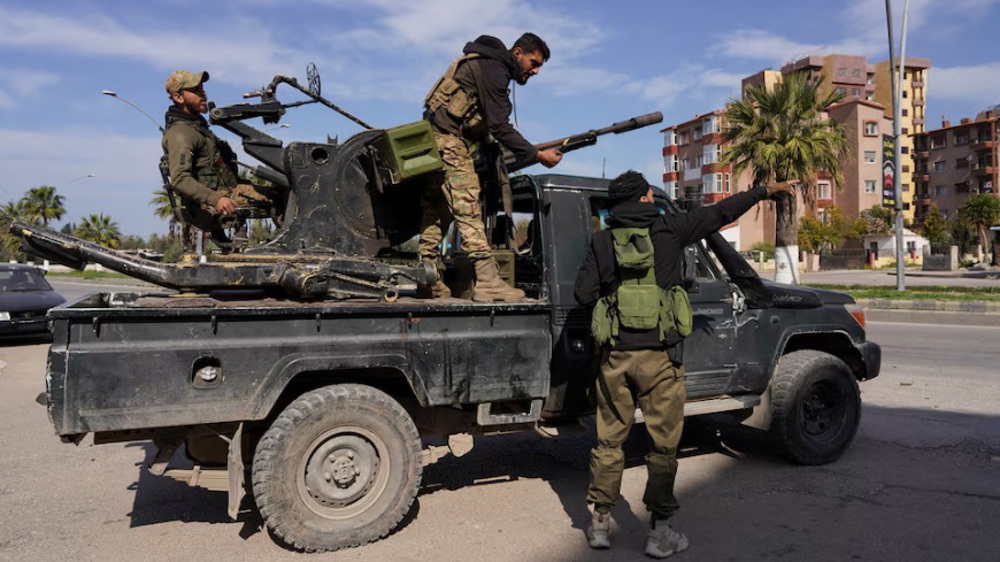
HTS gunmen, allied militants kill over dozen Alawites in Syria’s Homs
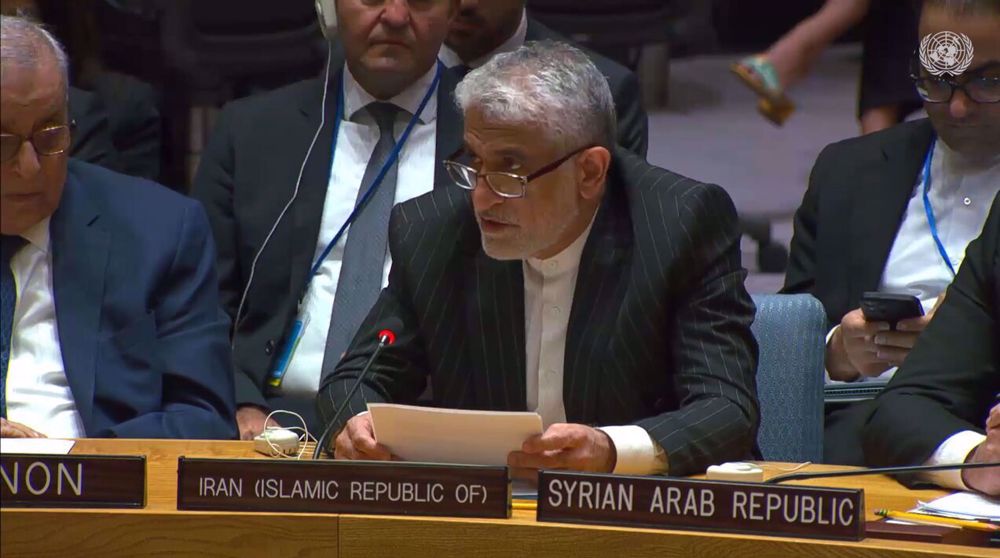
Iran backs sovereign, stable Syria free of terrorism, UN envoy says
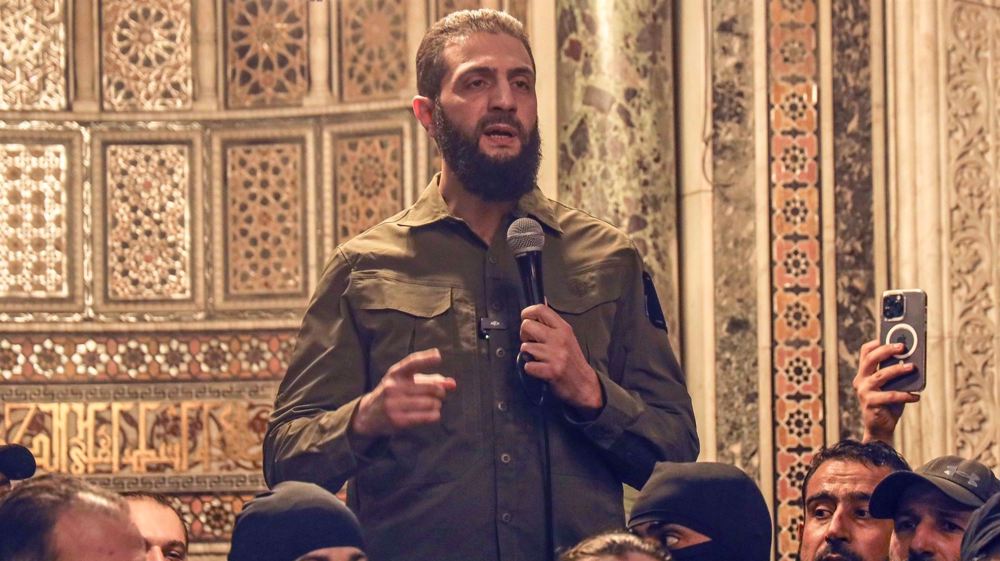
Syria’s HTS seeks normalization with Israel, Jolani writes to Trump
Putin orders emergency planes to Iran after blast at port of Bandar Abbas
Pezeshkian arrives at port blast site to monitor response operations
VIDEO | Press TV's news headlines
Betar US: America's new face of Zionist terrorism and the darker rebirth of Kahanism
‘More serious than before’: Iran-US talks enter critical phase amid hope and caution
Pezeshkian’s visit to Baku heralds new order in South Caucasus
VIDEO | Eight killed, six injured after car rams into crowd at Vancouver Filipino festival
Keffiyeh-wearing Jewish woman assaulted by pro-Israel mob in New York


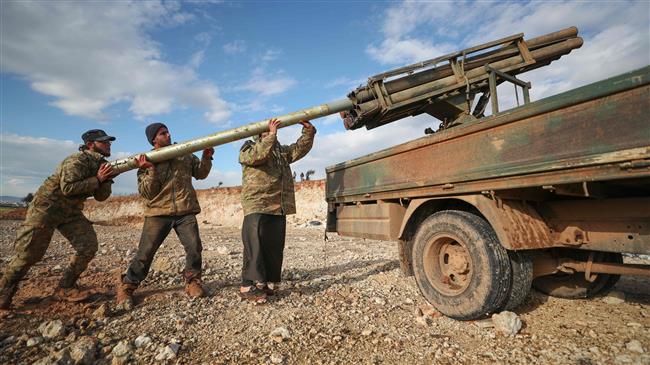





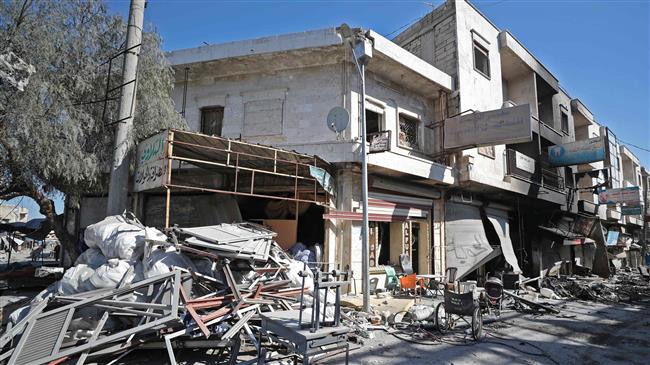
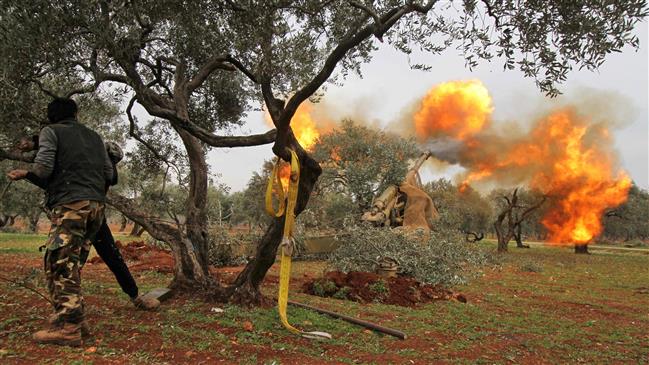
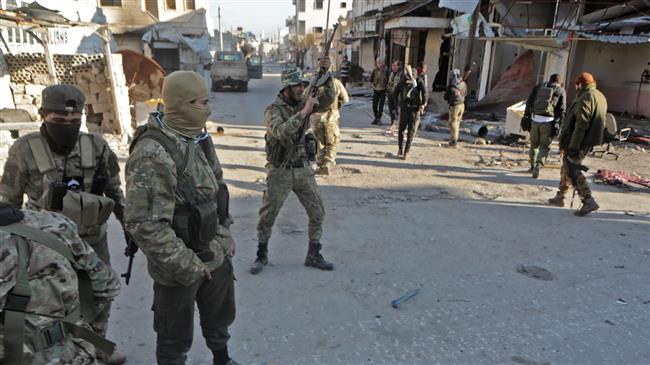

 This makes it easy to access the Press TV website
This makes it easy to access the Press TV website